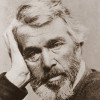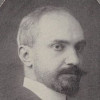“ We do not enjoy the expression of evil, but only the pleasant excitements that come with it; namely, the physical stimulus and the expression of good. In tragedy, the misfortunes help to give the impression of truth, and to bring out the noble qualities of the hero, but are in themselves depressing, so much so that over-sensitive people cannot enjoy the beauty of the representation. ”
George Santayana, The Sense of Beauty (1896). copy citation
| Author | George Santayana |
|---|---|
| Source | The Sense of Beauty |
| Topic | excitement beauty |
| Date | 1896 |
| Language | English |
| Reference | |
| Note | |
| Weblink | http://www.gutenberg.org/files/26842/26842-h/26842-h.htm |
Context
“Yet this comic aspect, at which we ought to wince, seems to endear the character all the more. This is a parallel case to that of tragedy, where the depth of the woe we sympathize with seems to add to our satisfaction. And the explanation of the paradox is the same. We do not enjoy the expression of evil, but only the pleasant excitements that come with it; namely, the physical stimulus and the expression of good. In tragedy, the misfortunes help to give the impression of truth, and to bring out the noble qualities of the hero, but are in themselves depressing, so much so that over-sensitive people cannot enjoy the beauty of the representation. So also in humour, the painful suggestions are felt as such, and need to be overbalanced by agreeable elements. These come from both directions, from the aesthetic and the sympathetic reaction. On the one hand there is the sensuous and merely perceptive stimulation, the novelty, the movement, the vivacity of the spectacle.”
source


